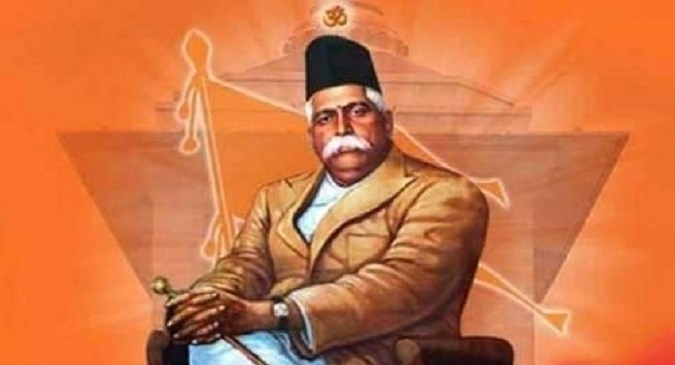Remembering Dr. Keshav Baliram Hedgewar and his management principles!
21 Jun 2020 19:06:29
-Sunil Khedkar
II तुझे तेज अंगी शतांशे जरीही II
IIउजाळूनी देऊ दिशा दाही दाही II
It is the Punyateethi or death anniversary of Dr. Keshav Baliram Hedgewar, founder and the first Sarsanghachalak of Rashtriya Swayamsevak Sangh.
He died eighty years ago and the organization founded by him is 95 years old now. The same organization is well known across the globe and is present across the world. Doctorji, as he was known fondly by fellow swayamsevaks and people in the society had to go through hardships right from his childhood. He befriended with many influential people across society and geographies.
The biography written in Marathi by Shri N H (Nanarao) Palkar is accepted as an official one. Many Sangh functionaries say that, whenever we feel down, dejected, or get stuck, we read Doctorji biography written by Nanarao Palkar.

I have heard lot of Doctorji’s stories during my childhood in Sayam Shakha, thereafter as I grew, I could comprehend his thoughts, the thought process, organization skills, his vision, attentiveness and yet I am in the process of comprehending these things during my journey as a Swayamsevak.
Each Sangh or Sangh thought inspired Institutions, campaigns, projects have an origin in the life he lived. Today’s social activities or offering Sewa, Awareness about being Hindu, Social Harmony, Ram Temple Construction, Promoting Sanskrit Language , Nurturing family calues , connecting with people, developing persons, caring the each and every constituent or Swayamsevak, approach of collaboration but if its inevitable plan, prepare for a confrontation or a fight, think long term , plan programs for activating the functionaries, training programmes, the meetings , all these which I remember today and I could understand. And there are many which I am not yet aware of or could not comprehend!
Many Management concepts are deeply rooted in Sangh, let us look at some of them-
Human is a resource – all the Sangh activities and objectives are Human Centric or for Vyakti Nirman , development of an individual.
Participation- Distribution of work amongst swayamsevaks even for a smallest and a shortest program at the lowest level.
Involvement- Solicit, receive suggestions from functionaries, brainstorm, think on those, and act where possible.
Management by Meeting- A Swayamsevak gets developed in a Shakha ,A Karyakarta or a functionary gets developed in a series of meetings because, in meetings diversely opposite ideas are put forth, discussed for its pros and cons and finally a decision is arrived. Once a decision is arrived everybody works to implement decision taken about a program. If a decision is otherwise, all the plans to start a program is shelved without any grudge and the team moves forward.
Management by Objectives- Define qualitative and quantitative objectives , plan to achieve the objectives , all the concerned work to achieve the objectives , conduct periodic review to assess the progress and do course correction if required.
Team effort- all the games in Shakhas are to inculcate this value of teamwork, because of work is distributed amongst may, there is never a one man show! I
Leadership- Leadership by example , leading from the front , live by example.
Management Skills- it is experienced time and again , the annual program of all India Leadership is designed in the beginning of the year. Annual, Quarterly, Monthly schedules are prepared and adhered to according to the geographic spread and hierarchical level. While many are working for pandemic relief equal number , many are engaged to plan for holding Gurupujan Utsav!
Time Management- Plan , schedule the programs, activities should be based on available time, find time to work, act accordingly tirelessly.
Feedback mechanism- Muktachaintan sessions or free discussions, expressions , manifestations without agenda , informal meetings , general chat are the different ways to seek feedback.
Lastly the famous Deming Cycle of PDCA or Plan-Do- Check -Act.
Plan activities
Do as per plan
Check for results achieved and review
Act as per review to ensure correction or improvement.
The list is long, but this is adequate to narrate Doctorji’s greatness!
II तुझे तेज अंगी शतांशे जरीही II
IIउजाळूनी देऊ दिशा दाही दाही II
II If I obtain hundredth part of your Teja II
II We shall brighten all the directions II
